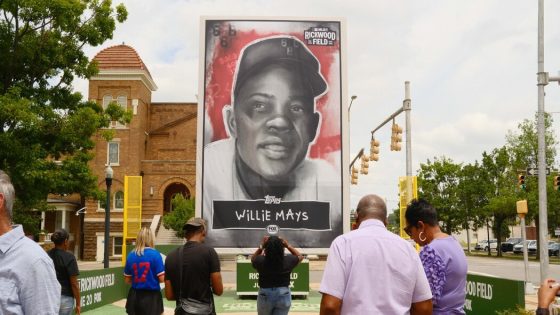Among them is Charles Willis, 92, who still lives in his childhood home, a modest brick house in the Birmingham suburb of Fairfield, a few blocks from where Mays, his childhood friend, lived. They played together in high school, Willis in center field then and Mays at shortstop. Willis played at Rickwood, too, but just one season. The other day he showed a visitor his baseball card, with a crisp scouting report on the back: “speed with a great arm.”
“That was the Black man’s sport, back in the day, baseball,” he said, and Black Barons games were always big events. “If they were in town on Sunday and church service was held, the pastor had to get through the sermon early because if not, the folk are going to leave and go to the ballgame.”
Reaf Blue, who played for the Black Barons and Atlanta Black Crackers in the late 1950s and early 1960s, grew up in the neighborhood surrounding Rickwood and still lives there. As a teenager, he got a job at the ballpark as a groundskeeper and cleaner, and worked his way up to center field.
Sometimes, when he worked there as a teenager, on game days, “I had to put up a rope in the stands, with the Blacks on this side and the whites on that side. I really hated to put that rope up, but I had to put that rope up.”
Rickwood touches history beyond baseball. A plaque outside the main entrance memorializes a women’s suffrage rally held there in 1915, although nowhere is there a mention of the Ku Klux Klan gathering held at the ballpark in 1924, or anything about the career of Bull Connor, who called white Barons games on the radio before he became the violent enforcer of Jim Crow segregation in Birmingham as the commissioner of public safety.
Source Agencies


